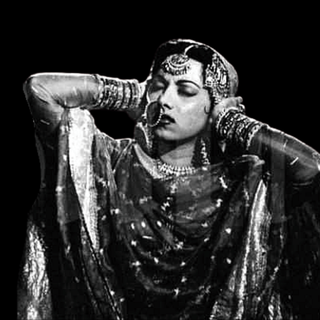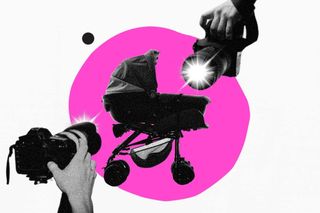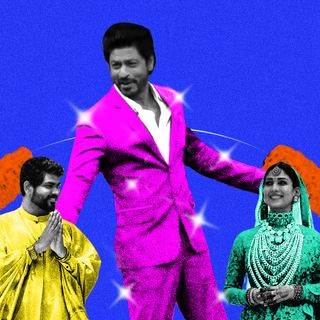
Why People Are Obsessed With Babies of Celebrities
It seems as if we’ve somehow managed to put the onus of uplifting a society riddled with a variety of evils on their baby shoulders.

This week, Entertainment Times released a picture of Vamika, the daughter of actor Anushka Sharma and cricketer Virat Kohli. The fact that Sharma and Kohli have, time and again, refused their consent for publication of their daughter’s pictures, didn’t matter to the news outlet against the views that this scoop — in the form of a pixelated picture of the child outside Mumbai’s airport — would generate. Evidently, then, this isn’t just a case of the media violating clear boundaries; it is also an example of society’s collective obsession with consuming news, photos, and videos of celebrities’ kids that egg media houses on to disregard the need for consent.
“In our social media-driven world, celebrity babies are revenue and click-generating gold… There isn’t a media outlet out there [that] wouldn’t want to feature an exclusive picture of [these kids] — they know well that this will lead to increased traffic, which leads to increased exposure,” Jill Stanley, a lawyer who also runs a website that engages in commentary on celebrities’ lives, had explained once.
The birth of Aaradhya Bachchan in 2011, too, was enveloped in a quagmire of unhealthy intrigue — with people wondering what she’s going to be named, and astrologers predicting how she’ll grow up to look, besides, of course, the media hounding the family for a glimpse of the infant. A few years later, Indians were so obsessed with Taimur Ali Khan, son of actors Kareena Kapoor Khan and Saif Ali Khan, that a doll fashioned after him hit the markets in 2018.
Perhaps, not every instance of intrigue around babies of celebrities isn’t as disturbing and creepy as mass-manufacturing their lookalikes. But the unhealthy preoccupation is as universal as it is pervasive. What bears testimony to the craze around celebrities’ kids are not just their pictures plastered across the internet, but also headlines about Beyoncé’s and Jay-Z’s 10-year-old daughter, Blue Ivy Carter, “bless[ing] the NBA with her presence,” and the royal grandchild, Prince Louis “steal[ing] Queen Elizabeth II’s Platinum Jubilee finale show.” But why is it that we’re so obsessed with these children?
Related on The Swaddle:
How the Obsession With Celebrity Weddings Fuels Unrealistic Expectations of Relationships
Unlike celebrities themselves, they don’t have a body of work that may have riveted legions of fans. In fact, they have done little other than being born to rich and famous parents — basically, into privilege. In 2010, Jenny Schafer, who was then a senior editor at CelebrityBabyScoop.com, attempted to rationalize the phenomenon, saying, “People want to see if celebs are really like us… Do their children have temper tantrums in public? Do their children use soothers? Do they ever get frustrated in public with their kids?”
These, however, seem mostly like things a parent might wonder about. But as Schafer had herself noted, “[the] demographics [for CelebrityBabyScoop.com] range from teens to housewives to business executives on their lunch breaks to grandmas.” An audience as age-diverse isn’t, perhaps, as likely to wonder about the parenting challenges of celebrities they will probably never meet. What is it that drives them, then?
“When two celebrities come together to have a baby, it seems like a super baby… Celebrities are pretty impressive people, so two celebrities make a really impressive baby,” Matt Johnson, professor of psychology at Hult International Business School in San Francisco, had said in 2018. According to Johnson, though, that’s not all; behavioral economic principles of demand and supply, too, may have a role to play in our obsession. “Celebrities are in demand, but they’re also common. But celebrity babies are relatively rare, and it’s even [rarer] to get pictures of them… As these become more and more rare, they also become more coveted.”
For some, however, consuming content around the babies of celebrities may be a manifestation of hate-following people on social media — feeling angry at them, envious of their life, and at times, ready to hate ourselves for not being who they are and having what they have. “For me, the endless amount of designer clothes, shoes, handbags, accessories, coupled with the ability to easily get involved in the fashion industry, is what I envy the most… Jealous is the way I feel when I see yet another Instagram post of North West wearing custom Balmain,” Hannah Sparks wrote in The Michigan Daily of her obsession with celebrities’ kids. “There have been rumors that ‘Brangelina’ are looking to adopt again, and to be honest, I find myself wondering — why not me?”
Related on The Swaddle:
Our Obsession With Every Cannes Look Reveals Our Need for Validation From the West
In contrast, our evolutionary instincts, too, could also be fueling our obsession with these kids — triggering, as BBC Earth had put it, “the ‘aw’ response.” “It’s been suggested that humans are hardwired to be nurturing to those who can’t fend for themselves. Based on how lovingly we care for our young and our compassion for others, this could be why we fawn over strangers’ babies,” Gillian Friebis had written as a journalism major and anthropology minor in 2019.
Perhaps, it is the same cute antics of these infants that induce relief from stress, much like watching
“cute animal videos” — of kittens, puppies, owlets, what have you! — is believed to. With people across the globe stressed — both emotionally and financially — perhaps, now more than ever, it is possible that a window into the lives of these infants provide them with fleeting respite.
However “cute” this obsession might sound, though, at the end of the day, it leads to an unfair demand. One that is met by violating the consent of individuals, who probably don’t even understand what “consent” means. “I chose a public life… In my case, this means that I am sometimes photographed. However, my three children are private citizens, and more than that — at one, four, and seven years old — they’re just little kids,” actor Jennifer Garner had said in a statement in 2013.
Yet, the notion of consent is one that’s often drowned in endless gushing over every babble, every coo, every hand movement of the babies. Babies, who are so young that they basically — and, perhaps, not even literally — just set foot on this earth. Yet, it seems as though we’ve somehow managed to put the onus of uplifting the spirits of a society riddled with corruption, capitalism, racism, casteism, and ableism, among others, on their baby shoulders — and, more accurately, on their toothless smiles. Perhaps, it’s time we move it back to our able shoulders that have not only played a part in making the world what it is, but are also leaving it in a worse state than we found it for these very babies.
Devrupa Rakshit is an Associate Editor at The Swaddle. She is a lawyer by education, a poet by accident, a painter by shaukh, and autistic by birth. You can find her on Instagram @devruparakshit.
Related


Are IG Reels and TikTok Ruining Music?
